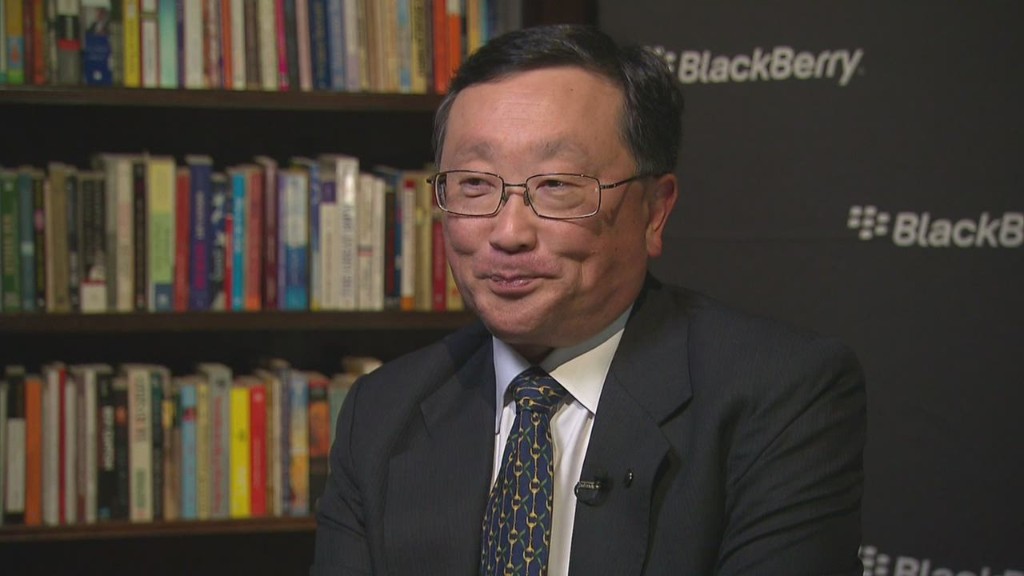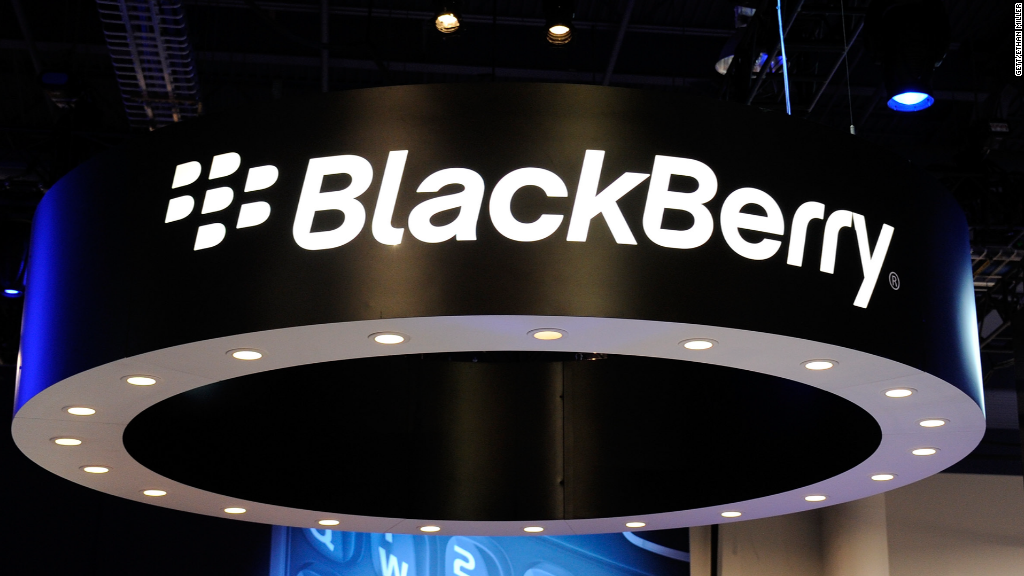
BlackBerry is back in the black. Sorta. But that news wasn't good enough to impress Wall Street.
The Canadian smartphone maker (and Kim Kardashian's favorite tech company) reported a small quarterly profit Friday morning, excluding certain one-time charges. Analysts had been expecting a loss.
But excluding those items, BlackBerry (BBRY) posted a net loss of $148 million for its fiscal third quarter.
Still, that's a huge improvement from the more than $4.4 billion loss it took in the same period last year. It's also a smaller loss than what it reported during the second quarter.
BlackBerry also ended the quarter with $3.1 billion in cash, the same amount it had on hand at the end of August. So it's encouraging that the company is not burning through cash.
It wasn't all good news though. BlackBerry's sales plunged 33% from a year ago and were well below Wall Street's forecasts. Shares tumbled nearly 10% Friday morning before rebounding and finishing the day with just a slight loss.
Related: Wireless war: Consumers win, investors lose
The company continues to lose subscribers. It's been left behind in the highly competitive smartphone market by the likes of Apple (AAPL), hardware companies using the Android operating system from Google (GOOGL) and Microsoft (MSFT).
During a conference call with analysts Friday morning, BlackBerry CEO John Chen said that the company's sales were not "satisfying" and that it will probably take a "couple of quarters" before sales start to increase.
This has been a challenging, but mostly positive turnaround/transition year for BlackBerry.
Chen, who took over BlackBerry in November 2013, has been focusing more on software and services for its core base of business customers. It's a strategy that has won him raves on Wall Street. The stock was up more than 35% this year before Friday's plunge.
Related: Chen says BlackBerry won't 'chase sensationalism'
But BlackBerry hasn't completely given up on selling smartphones.
The company introduced the new square-shaped Passport in September. And just this week, BlackBerry took a page from Coca-Cola and went retro with the launch of its new/old Classic model, which features a traditional, physical keyboard. (It's QWERTY-licious!)
Chen said that wireless carriers are "very excited" about the Classic and that he expects them to promote the phone prominently in their stores.
And in what appeared to be an attempt to reconcile with T-Mobile (TMUS), Chen said that it was willing to work with any carrier as long as BlackBerry was treated "respectfully."
T-Mobile CEO John Legere angered Chen this year with a marketing campaign that encouraged BlackBerry users to switch to iPhones. T-Mobile is no longer offering any BlackBerry products to its subscribers.

BlackBerry managed to sell 2 million phones in the last quarter, 5% more than it sold during the same quarter last year. Still, the company's future clearly lies beyond the once addictive CrackBerry.
Under Chen, BlackBerry has struck several partnerships with Samsung, the dominant company in the Google Android camp.
BlackBerry also bought a company this year that lets people have separate business and personal accounts on the same device -- and it works with Android and Apple's iOS.
Chen is also making a big bet on the so-called Internet of Things with its Project Ion. And it is also gaining momentum in the connected car market thanks to its QNX software.
Earlier this month, Ford (F) announced that the newest iteration of its Sync in-vehicle tech system will run on QNX instead of software from long-time Ford partner Microsoft.
BlackBerry also generated some good press this year at the expense of Apple. The infamous iCloud hack and leak of nude celebrity photos online reminded many people that BlackBerry still has a great reputation for security.
So it will be interesting to see if Chen can build on this momentum in 2015.


